Do you know where your money goes every month? If you’re having a hard time answering, chances are you’re not tracking your expenses, and I’m pretty sure you’re not on a budget either.
Budgeting and tracking your expenses go hand in hand. To stay on budget, you must know what and where your money is going. It’s a perfect recipe for reaching your financial goals.
Our budget has had ups and downs throughout our debt-free journey. But, we have seen firsthand how keeping track of expenses positively impacts our budget.
Therefore, today we’ll discuss the benefits of tracking your expenses so that you can be completely in control of your finances!
Disclaimer: This post may contain affiliate links. This means I receive a small commission, at no extra cost, if you purchase using the links below. Please see my earnings disclaimer for more details.
Table of Contents
Why is it important to keep track of your expenses?
Tracking your spending keeps you on budget and gives you complete control over your finances. So, here are the biggest benefits of tracking your expenses.
Keeps you accountable to your budget
Creating a monthly spending plan is great, but it doesn’t mean you will stay on budget. Tracking your daily expenses ensures that you are sticking to your budgeted amount.
If you’re in a relationship, tracking helps to keep both of you accountable to the budget you agreed on.
Unmasks bad spending habits
When you start tracking your spending, you see your wasteful spending habits. Maybe you get the kids a treat every time you go grocery shopping (guilty!) or grab a Starbucks every day after braving the school drop-off line.
I definitely get it, but these small purchases add up. And the bad spending habits can lead to overspending and keep you from reaching your financial goals faster.
Keeps you focused on your financial goals
Tracking money spent will keep you focused and motivated on your short and long-term financial goals. When we were paying off debt, keeping track of our spending on a whiteboard gave us the focus to stay on budget.
We were not only focused but also motivated to come in under budget to pay more towards our debt. Seeing your spending written down keeps you motivated to reach your goals.
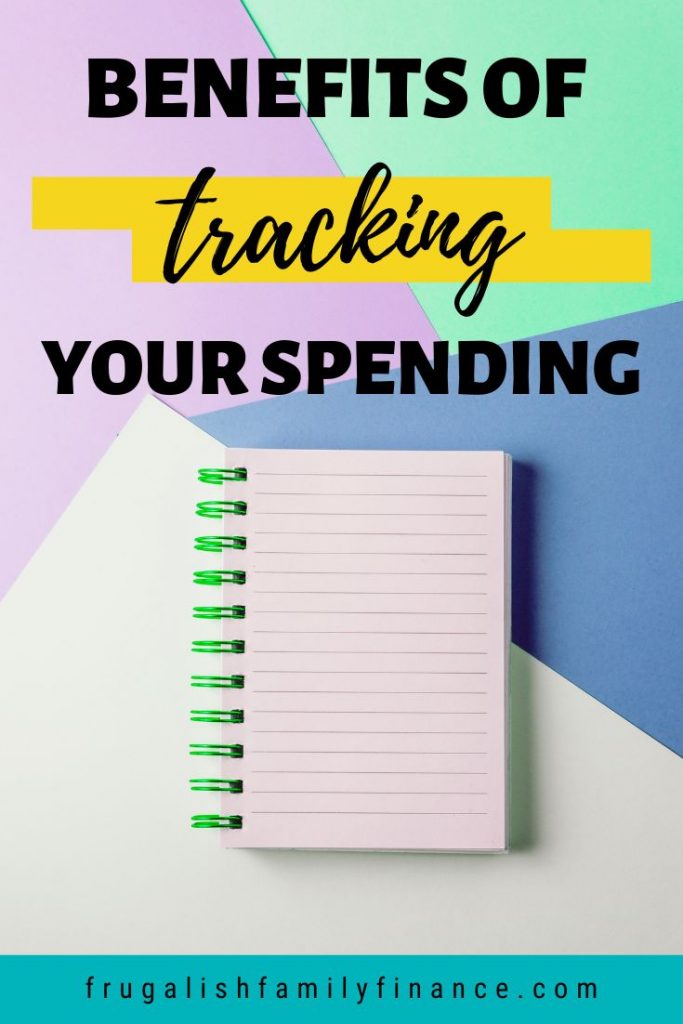
Reduces your financial stress
Not knowing where your money is going and not having enough to cover your monthly expenses is stressful. If you’re not tracking, you’re not staying on a budget either.
If you’re not on a budget, you’re probably spending way more than you should be, which can lead to overspending, living paycheck to paycheck, and debt. All these things lead to financial stress, which affects your physical and mental health and relationships.
Related: 4 Painful Consequences of Overspending and How to Stop
Keeps you out of debt
Controlling your finances with budgeting and tracking allows you to stay out of debt because, you know…
- How much money is coming in.
- Where your money is going.
Not only do you have more control, but seeing the amount of money you pay out to student loans, car payments, and credit card debt (which may surprise you) will help light a fire under you to start paying it off.
Related: How to Slay Your Debt Using the Debt Snowball
Allows you to save money
Knowing how much money you spend daily and monthly can help you find different ways to save.
- Using cashback apps
- Clipping digital or paper coupons
- Shopping sales
- Buying in bulk
You learn how to live a more frugal life, which helps you save money to put towards debt or reach your savings goals, such as savings accounts for an emergency fund or upcoming purchases.
Makes it easier to catch accidental or fraudulent charges
Have you ever checked your bank account and seen $78 worth of charges on the Google Play Store a month ago because you forgot to set the parental controls?
Or, find $200 missing from your account because your debit card was skimmed when you got gas?
Tracking your spending daily makes it easier to catch when you have accidental or fraudulent charges because it’s definitely not fun having to deal with that stuff months later.
Cuts down overspending and impulse spending
When tracking your spending, you know how much is left in that budget category to spend. Therefore, you’re less likely to make impulse purchases or overspend because you want to stay within budget.
Cash envelopes are a good idea to track your spending if you are a severe overspender or impulse buyer.
Shows what budget categories need re-evaluation
Knowing your spending habits by tracking them helps you see what budget categories need more attention. It allows you to see those pesky yearly purchases you always forget (ugh!).
Also, it helps you to see what specific category you need to tweak—for example, rising grocery or gas prices. Tracking will help you better plan for the upcoming months.
Improves your relationship
Because you are budgeting and tracking your expenses as a couple, you will have less to argue about when it comes to money. When you create a budget, you decide on the amount for each category.
You agree on the monthly spending, whether it’s bills, family activities, or self-care. Therefore, there is no trying to hide purchases, excuses for spending, and no fights about money.
Makes your side hustle or business more profitable
If you have a side hustle or a small business, tracking your spending can help you to be more profitable. Tracking your business expenses helps control your spending, avoid paying unnecessary taxes, and better organize your business finances.
Helps you find where to make budget cuts
Visualizing your spending will help you identify possible areas of your budget that you can cut or slim down to save extra money.
- Cancel cable and stream instead
- Cutting down your food bill
- Decrease utility bills
- Cancel unused and unnecessary subscriptions (ex. unused gym membership or streaming)
Cutting the fat out of your budget will help you to save more money and make your financial goals more attainable.
Steps for tracking your monthly expenses
The best way for expense tracking is to follow these three steps.
Create a budget
The first step is to make a monthly budget. A budget is a way to tell your monthly income where it needs to go. By putting your money into categories, you can begin figuring out how to track your monthly spending.
Track every purchase
After your budget is done, you start to track your everyday expenses. This can get messy if you don’t keep up with your daily spending. Don’t try to keep track in your head or wait until the end of the month. Whatever tracking method you choose, record your spending as soon as you spend it.
Monitor your spending
Lastly, you must keep a close eye on the remaining balance after each purchase. Knowing how much you have spent and the remaining balance will help you stay in control of your budget.
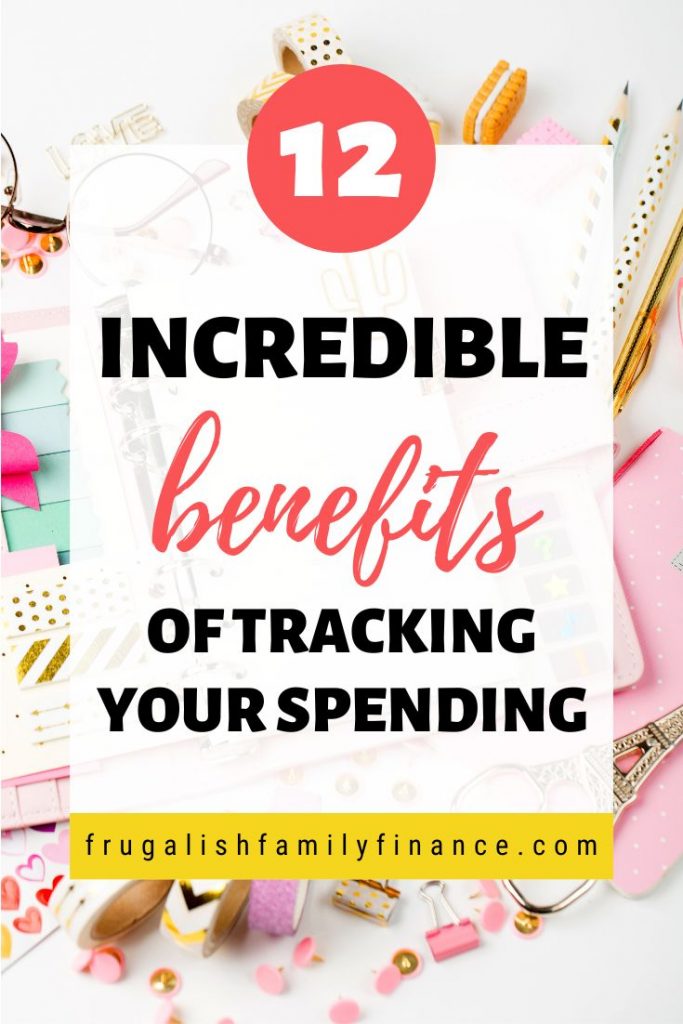
Methods for keeping track of expenses
There are several simple ways to track your monthly spending. One way is no better than the other, so choose what you think will work the best for you.
Expense tracker apps
There are hundreds of mobile apps out there to fit your family’s needs for budgeting, tracking, and more. A couple of free options that we have tried are…
- Everydollar budgeting app
- Mint
- GoodBudget
Related: How To Use EveryDollar App To Better Manage Your Money
Envelopes
Cash envelopes are a great way to start; they help you feel that emotional connection to your hard-earned money. Spending cash versus using credit or debit cards definitely feels different. It’s painful to see your envelope empty (especially when you still have half a month to go)!
With envelopes, you withdraw the money from the bank monthly or bimonthly and pay cash for everything. You write the total you spend directly on the envelope, and when the money is gone…it’s gone.
Related: How To Start Cash Stuffing For Beginners In 2023
Spreadsheets
Spreadsheets are a great way to keep track of your monthly cash flow. If you’re a spreadsheet nerd, you can create your own template for tracking. There are tons of fancy budget and tracking spreadsheets on Etsy or with a quick internet search. But a couple of free options would be…
- Microsoft Excel budget templates (if you have Microsoft Office)
- Google Sheets budget templates
Pencil & Paper
Pencil and paper are good ole fashion ways of keeping track. Write down your spending categories and write down what and when you spend.
We found a huge whiteboard in our kitchen (like this one) that works the best for our family. We write out our columns and subtract our spending from the remaining balance. It’s a great visual, and it is easy for my husband and me to keep an eye on our spending.
What to remember when tracking
You need to know a couple of things as you track your spending…
Be consistent
You have to get into the routine of writing down your spending after each purchase. It’s really easy to go over budget if you’re just “tallying” the amount in your head or waiting until the end of the month…trust me, I know.
Adjust your budget monthly
At the end of the month, you need to look at your remaining spending balance. If you came in under budget, assess and see if you need to decrease your monthly budgeted spending in the different categories.
If you went over budget, decide whether you need to budget more for that category or if you just went a little overboard with your spending.
Make changes
If you find whatever tracking method you choose is not working, make a change. There is no one way that you should be tracking your monthly spending. So, try one of the other methods before throwing in the towel.
To be honest, we have tried every method and found we are most successful with our whiteboard.
Conclusion
Going off course with your budget is easily done when you’re not tracking your spending.
We have repeatedly gone over budget by trying to keep track of our spending in our heads or not at all. Finally, we learned to track our spending daily, and we saw its positive impact on our finances.
So, make sure to find a tracking method that works for you, be consistent, adjust your budget monthly, and make the changes you need to reap the benefits of tracking your spending.
Have you seen any positive benefits of tracking your spending? Leave a comment below!
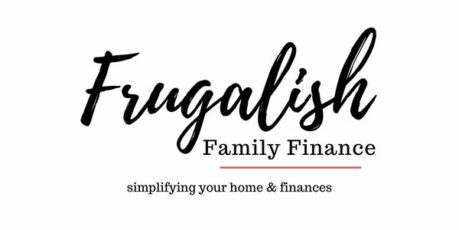
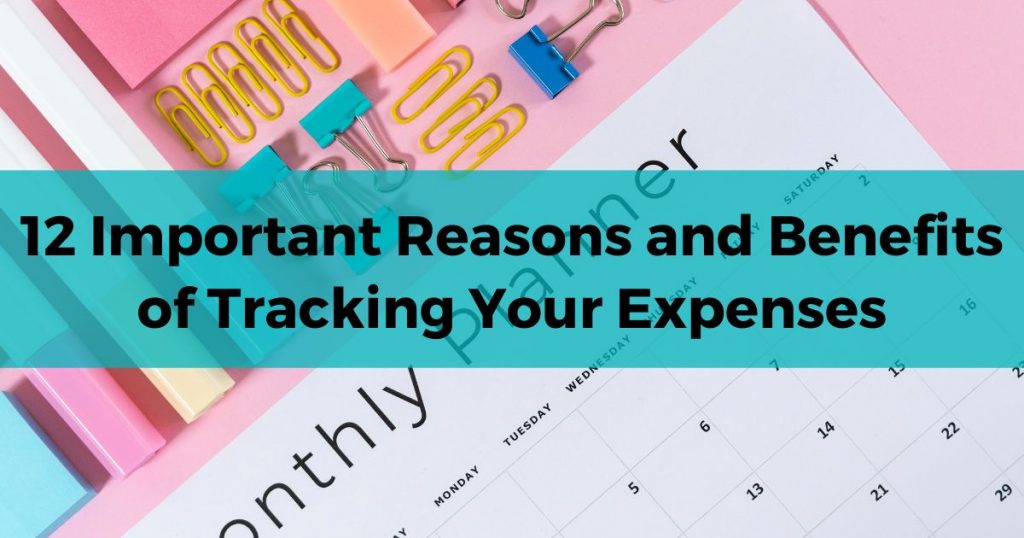
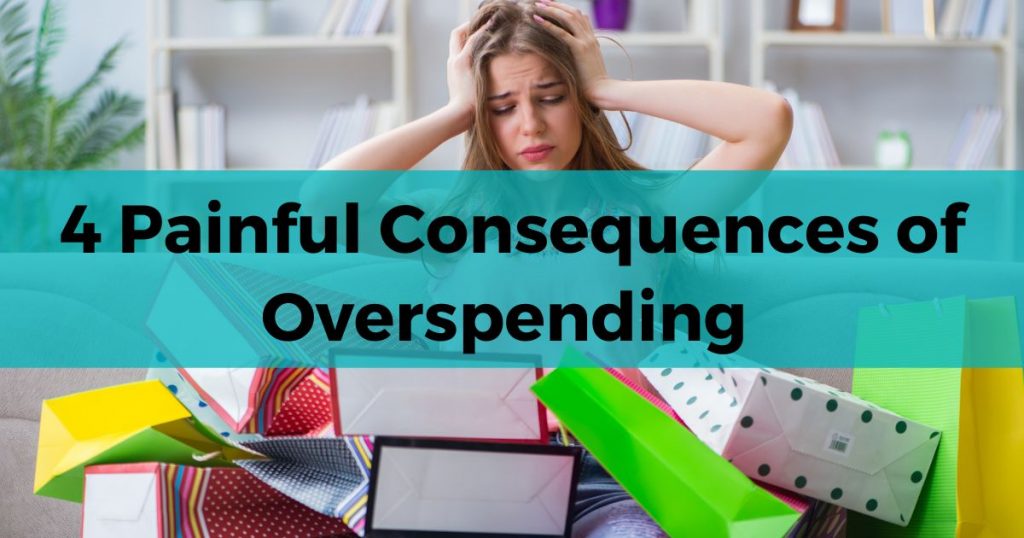
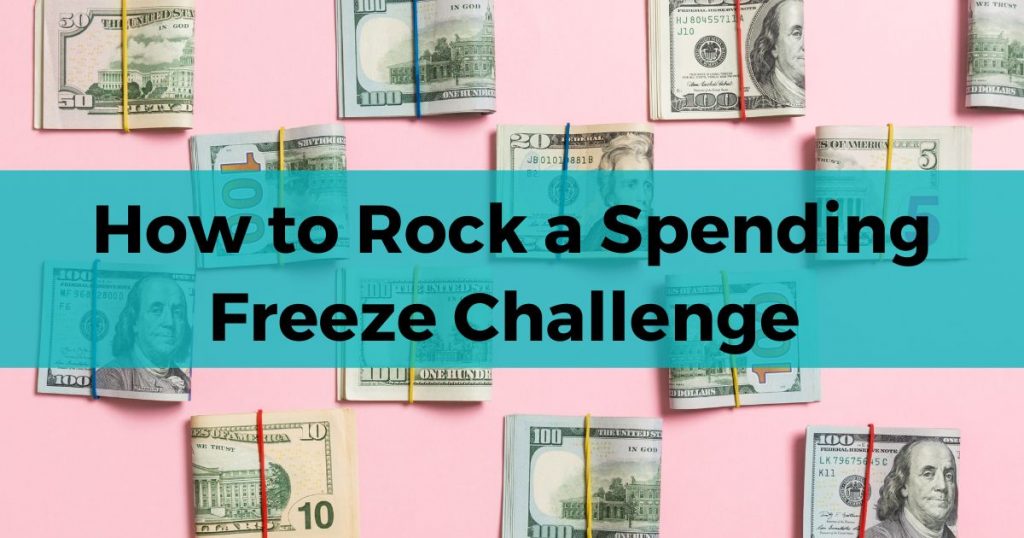


Great summary, thanks a lot for this post! Very useful!
These are great ideas! I love all the ideas for tracking spending. I am the worst at this. I have tried Everydollar, but for some reason just can’t stay consistent. I think I will try a spreadsheet next. Thank you!
I always track my expenses, glad to learn more important tips on this topic. Thanks for sharing!
I started doing this and I’ve been able to monitor where my money goes. I can also clearly know where and when to spend my money. It doesn’t have to be impulsively done, anymore.